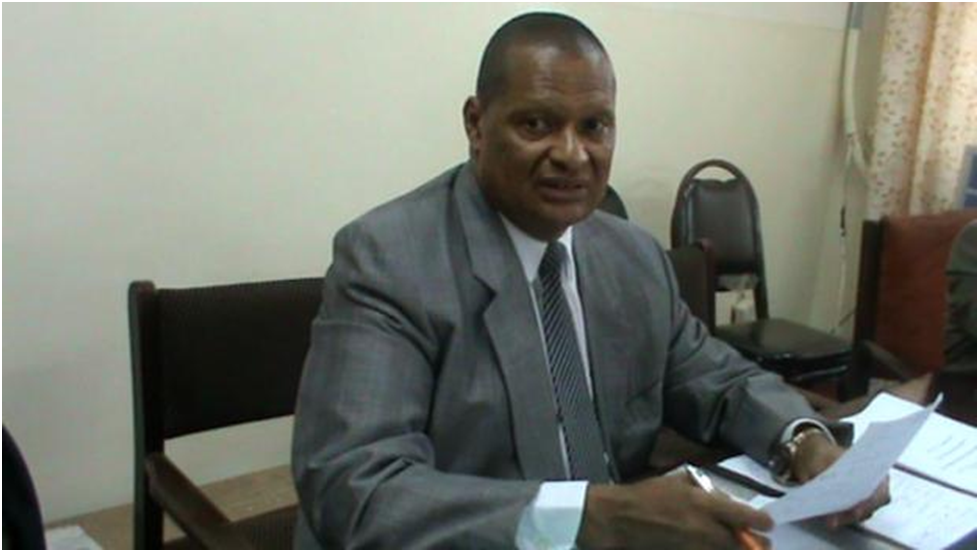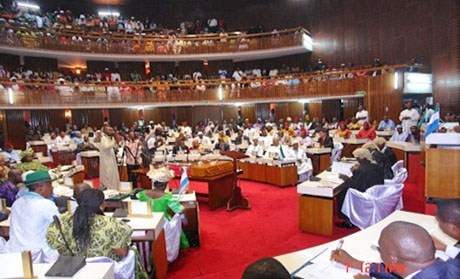HMRO visits 8 pilot ministries on performance appraisal/contract
The Director General of the Human Resources Management Office (HRMO) Ernest A Surrur (in photo) recently led a team of Directors and senior staff of the HRMO on a visit to the 8 pilot Ministries that will start performance appraisal/contract in 2013.
The purpose of the visit was to identify senior functionary positions that will be involved in the implementation of the Individual Performance Appraisal System (IPAS) in the Ministries and Departments and to further sensitize them about IPAS. The meeting targeted senior staff of ministries including Permanent Secretaries, Professional Heads, Directors, Deputy Directors and Supervisors who will be responsible for the assessment of staff in the Ministries.
The Director General informed the management and senior staff of the MDAs that when H.E. Dr. Ernest Bai Koroma took over the reins of office as President of the country and to ensure that Ministers perform he introduced Ministerial Performance Contracts through which he holds Ministers accountable for the performance or otherwise of the Ministries. The Director General of the HRMO opined that it seemed unfair for Ministers to be held accountable for the Ministerial performance when it is part of the responsibility of civil servants to do the work. So it was unfair to judge the successes and failures of the ministries on the Minister alone. The Permanent Secretaries and other staff contribute towards the achievement of the ministers’ contracts Therefore, there was consensus among the leadership of the civil service at the Steering Committee to devise a means by which staff of ministries can be assessed and evaluated at the end of the year. For this reason the IPAS has been introduced to replace the Annual Confidential Report (ACR) which the DG HRMO said had lost its usefulness. He dilated on the advantages of using the IPAS as against the ACR.
The advantages of the IPAS are that it is transparent, accountable, negotiable, open, and participatory and targets are set based on the job descriptions and resources available to ensure staff effectively and efficiently perform tasks assigned to them.
One of the areas the Director General emphasized on the IPAS was that the Ministries are responsible for assessing their staff and thus determining their promotion, termination, transfer, training, rewards and sanctions. HRMO will only facilitate the process and use the results of the assessment to take administrative decisions.
He encouraged the senior management team of the ministries to treat the IPAS process seriously since it is a new system though evaluation in the Sierra Leone Civil Service is not new. It was the methods used that were inefficient and ineffective.
He went on to say that performance contracting aims at holding everybody accountable for their stewardship. The evaluation will be done at all three levels of management in the Service, i.e. grades 1-6for junior staff, 7-10 for middle level staff and grades 11 and above for senior staff. He noted that it was therefore important to get the process right at the beginning. He emphasized “If we don’t get it right, we will lose the credibility of the entire process”
The 8 pilot MDAs visited were the Ministries of Education, Science and Technology; Works, Housing and Infrastructure; Agriculture, Forestry and Food Security; Health and Sanitation; Trade and Industry; Fisheries and Marine Resource; Energy and Water Resources and Foreign Affairs and International Cooperation.
BY SalamatuTuray
Stay with Sierra Express Media, for your trusted place in news!
© 2013, https:. All rights reserved.







Abu Bakarr Bangura
/
Why can’t each ministry has its own Human Resources officers that are employed and based within these ministries to conduct all IPAS?
Having site based HR managers, advisers and administrators not only ensures that all instances of sickness absences, lateness, undperformance and negligence are noted down and assessed but also makes guarantees that cases are dealt with in the most efficient and speedier manner.
I can only wonder if the permanent secrataries or heads of departments do no like someone or cannot get along with someone and they happen to be the ones to conduct the disciplinary for those individuals. What would become of those individuals if the personal prejudices are there to influence the final outcome of the case.
The government does not need a Director General of Human Resources but rather highly trained and professional HR Practitioners in covering all departments that are there to ensure the workforce remains capable, efficient and productive.
The HMRO is nothing but an exercise in bureaucracy.
Abu Bakarr Bangura
23rd January 2013London, UK